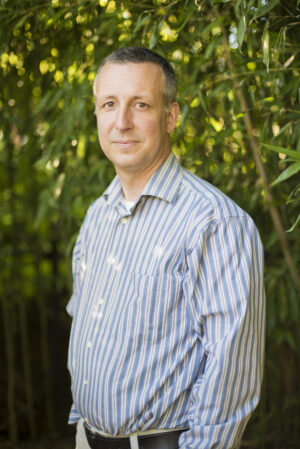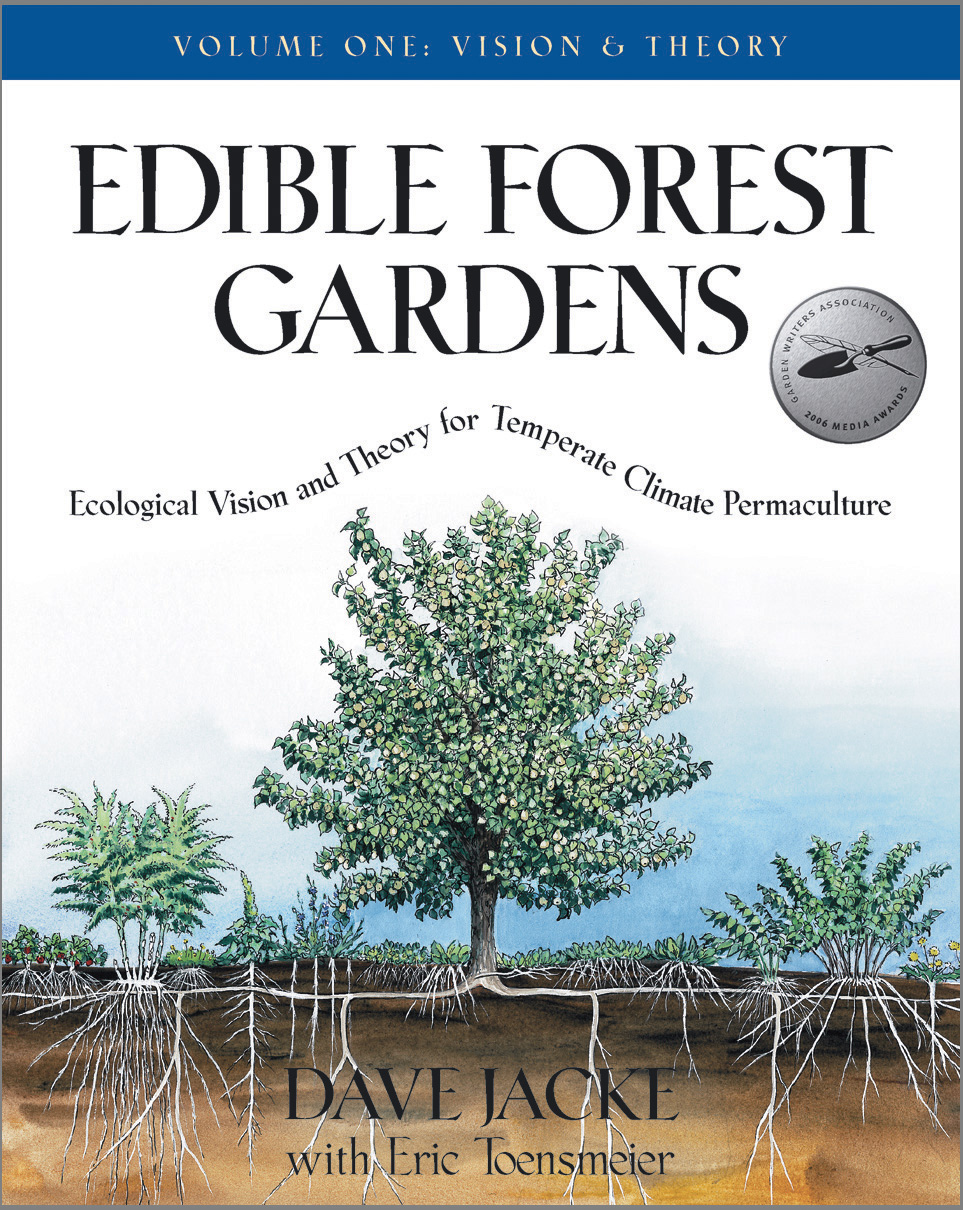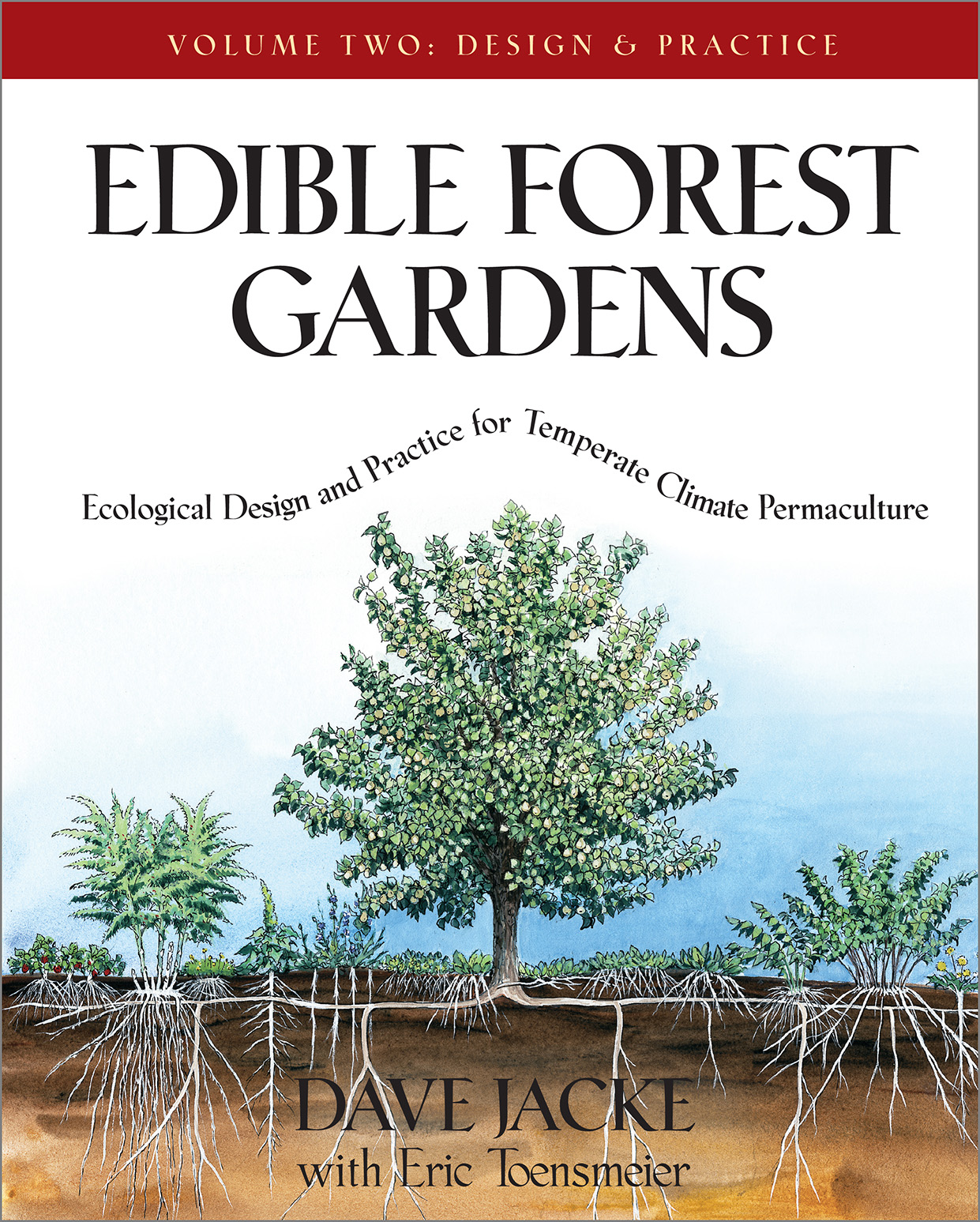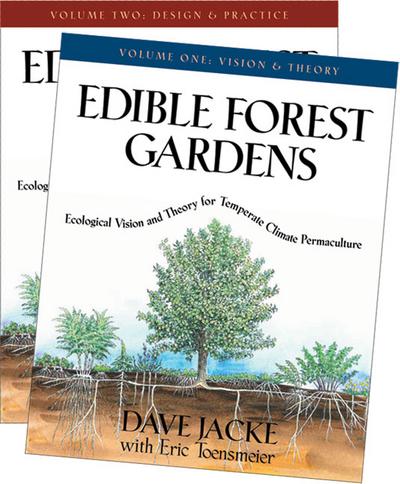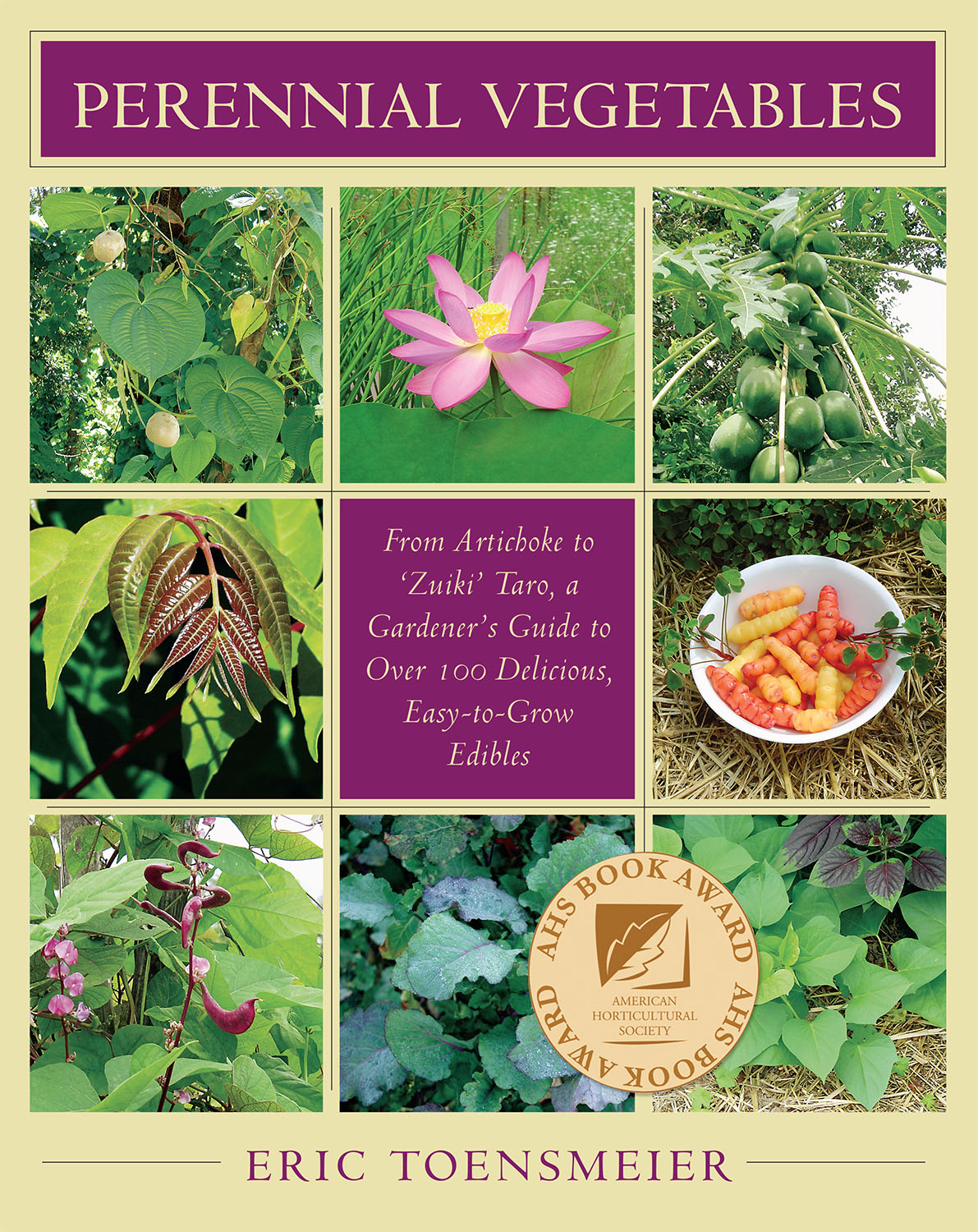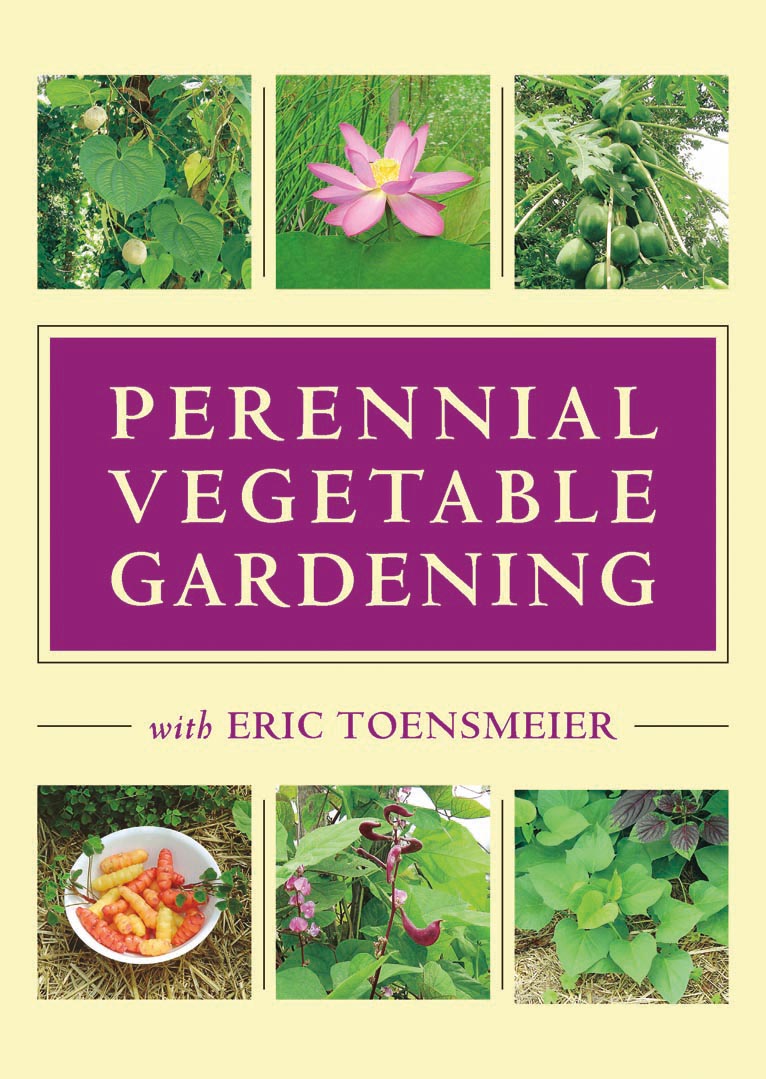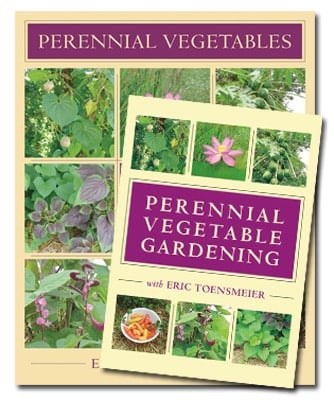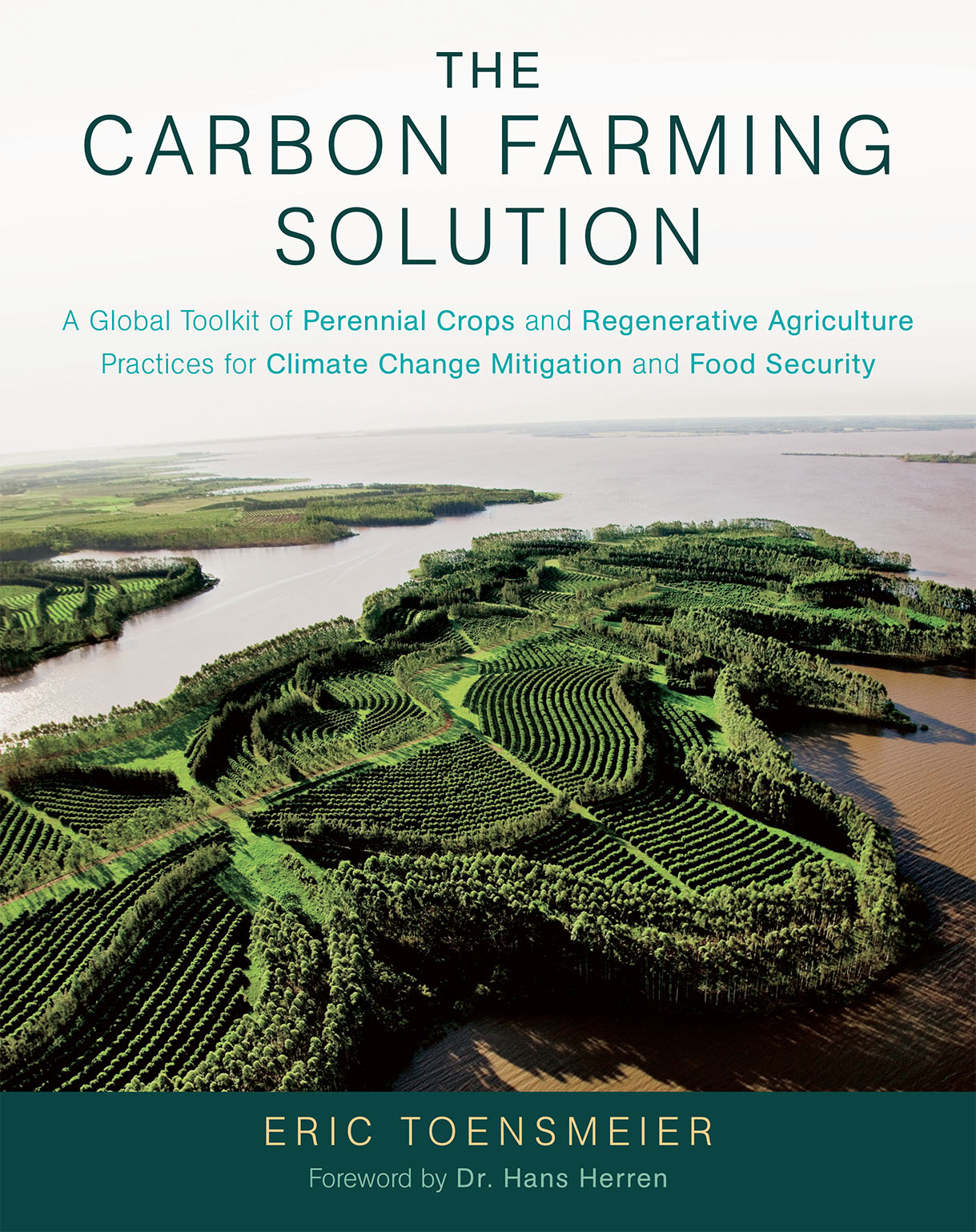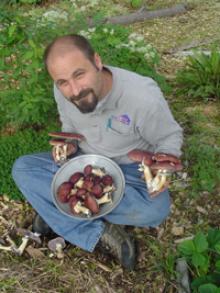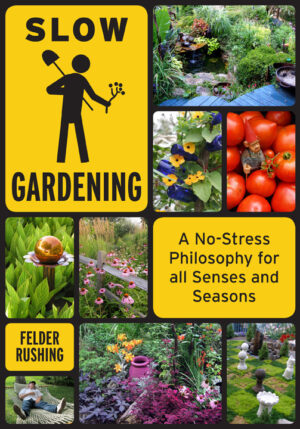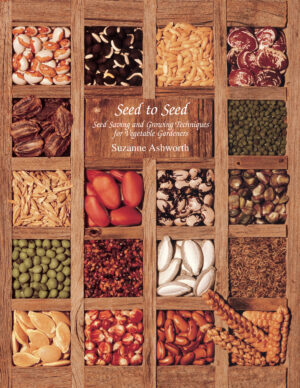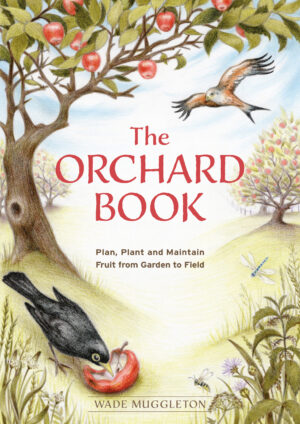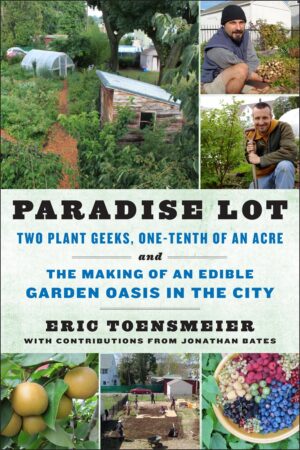Paradise Lot
Two Plant Geeks, One-Tenth of an Acre, and the Making of an Edible Garden Oasis in the City
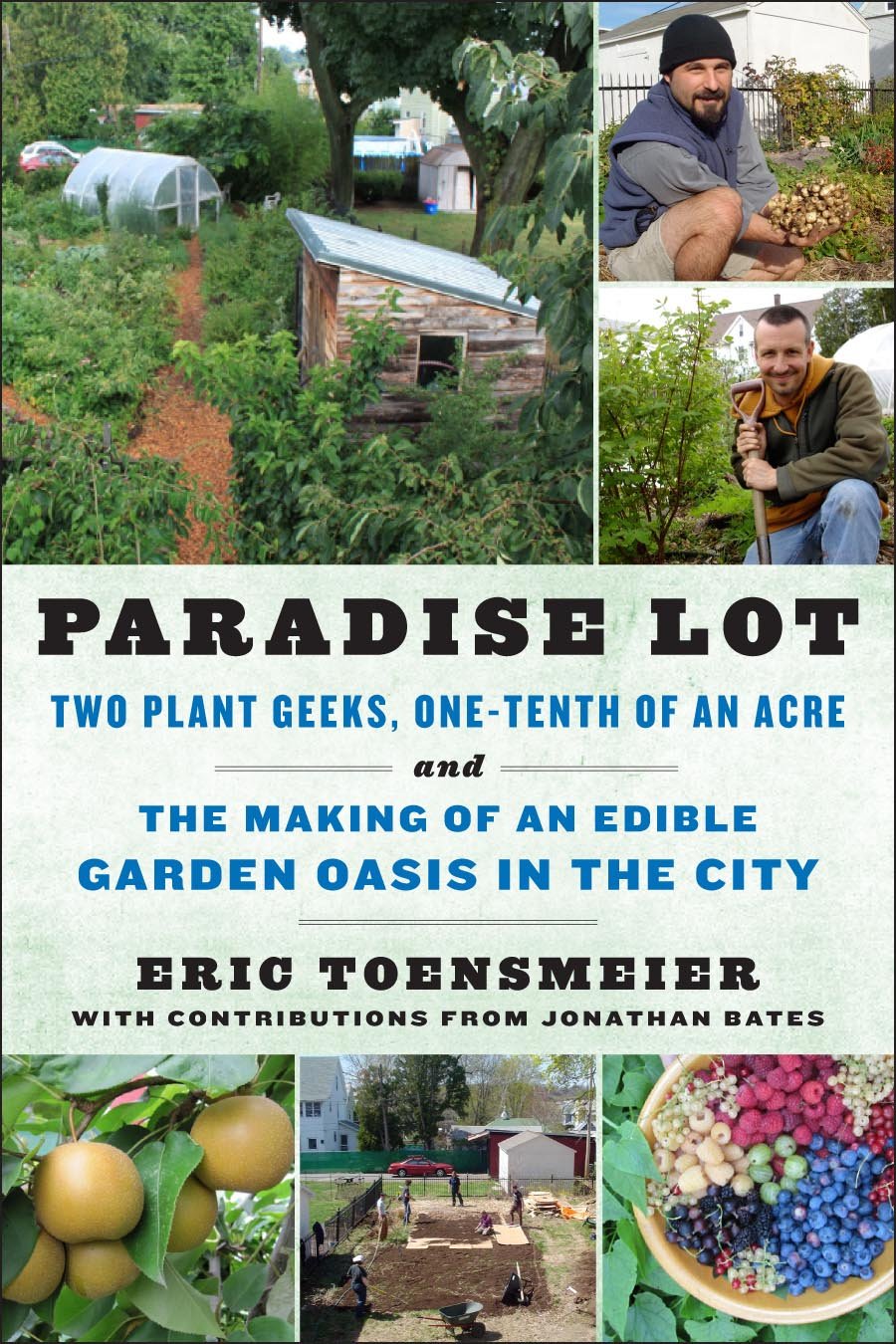
EXCERPTS
| Pages: | 240 pages |
| Book Art: | Black and white illustrations |
| Size: | 6 x 9 inch |
| Publisher: | Chelsea Green Publishing |
| Pub. Date: | January 25, 2013 |
| ISBN: | 9781603583992 |
Paradise Lot
Two Plant Geeks, One-Tenth of an Acre, and the Making of an Edible Garden Oasis in the City
When Eric Toensmeier and Jonathan Bates moved into a duplex in a run-down part of Holyoke, Massachusetts, the tenth-of-an-acre lot was barren ground and bad soil, peppered with broken pieces of concrete, asphalt, and brick. The two friends got to work designing what would become not just another urban farm, but a “permaculture paradise” replete with perennial broccoli, paw paws, bananas, and moringa—all told, more than two hundred low-maintenance edible plants in an innovative food forest on a small city lot. The garden—intended to function like a natural ecosystem with the plants themselves providing most of the garden’s needs for fertility, pest control, and weed suppression—also features an edible water garden, a year-round unheated greenhouse, tropical crops, urban poultry, and even silkworms.
In telling the story of Paradise Lot, Toensmeier explains the principles and practices of permaculture, the choice of exotic and unusual food plants, the techniques of design and cultivation, and, of course, the adventures, mistakes, and do-overs in the process. Packed full of detailed, useful information about designing a highly productive permaculture garden, Paradise Lot is also a funny and charming story of two single guys, both plant nerds, with a wild plan: to realize the garden of their dreams and meet women to share it with. Amazingly, on both counts, they succeed.
Reviews and Praise
Publishers Weekly-
In this charming, true-life tale of urban regeneration and the birth of a forest garden movement, Toensmeier, famous among permaculture enthusiasts for his Perennial Vegetables and as coauthor of Edible Forest Gardens, tells the story behind the Holyoke, Mass., garden featured as a test case in the latter, which, in the course of eight years, he and Bates transformed from a bare backyard wasteland into a flourishing, edible Eden. In true permaculture fashion, the book follows not only the progression of the garden but also its influence on and relations with its creators’ lives—including a surprisingly Austen-like romantic element—their neighborhood, and the larger permaculture and forest gardening community. Bates, whose nursery business, Food Forest Farm, is an offshoot of this garden, contributes philosophical and personal essays interspersed throughout the narrative. Fans of Toensmeier and Bates’s work will be thrilled to read the details of their experiments with polycultures, their problems with and solutions for pests and overly aggressive plants, and their idiosyncratic plant choices. Adventurous readers with conventional gardens and lawns may be inspired to venture into the more integrated, evolutionary approach that this book so vividly and appealingly portrays.
More Reviews and Praise
Booklist-
With their shared passion for plants and a commitment to creating as self-sustaining a garden as possible on a minuscule lot in a small New England city cursed with a terrible climate and even worse soil, Toensmeier and Bates set about converting their urban backyard into a permaculture paradise. Informed by his work on a seminal, two-volume encyclopedia devoted to the concept of forest gardening, Toensmeier transformed the infertile and debris-laden property behind the duplex he shared with Bates into a natural ecosystem teeming with edible plants. As the authors’postage-stamp-size front yard morphed into a lush, tropical showcase that astounded their Massachusetts community, the backyard incorporated all the components necessary to produce fresh fruits and vegetables year-round using cold-hardy, mostly native plants that would ideally require a minimum amount of work for a maximum output. As a memoir of a purposeful life, Toensmeier’s work is engaging, honest, and natural. As a directive to other gardeners eager to establish natural ecosystems in unlikely settings, his work is instructive, illuminating, and inspirational.
Kirkus Reviews-
The front yard was a short, steep slope of asphalt with a tiny strip of sterile gravel and subsoil," write Toensmeier and Bates, with a "backyard that looked like a moonscape, sparely populated with tufts of crabgrass." It was the perfect place to launch their experiment: Could two men with horticultural experience and a love of nature turn a typical compact backyard into a garden full of lush plants and edible food? The authors chronicle their 10-plus years of trials and experiments, as they transformed their "moonscape" into a permaculture of "trees, shrubs, vines, and herbaceous perennials" that produced food at every level. By analyzing their soil and plotting the movement of shade and sun for a year, the authors discovered the prime locations to build a greenhouse and tool shed. They knew where to plant trees and perennials so that they could bring their site to life, and they developed a deeper kinship with the space and with each other. Along the journey, the authors present ideas like sheet mulching, which can transform a lawn into a useful garden plot capable of growing tomatoes and sweet corn in the first year. They also share their thoughts on the plants that can become noxious weeds despite their culinary uses. Toensmeier and Bates discuss both their triumphs and their defeats, as they experimented with chickens, nitrogen fixers, ground covers, numerous kinds of berry bushes and water plants. Although not a how-to guide, the authors give readers plenty of choices and ideas to think about when deciding whether to embark on this kind of gardening.
ForeWord Reviews-
“Urban agriculture is becoming a hot topic in sustainable farming circles as more people become interested in organic foods, healthy eating choices, and environmental topics. Given population densities in some areas, “urban agriculture” might seem like an oxymoron to some, but with careful planning and a sense of adventure, even a tiny plot of land can yield a bumper crop.
Longtime friends Eric Toensmeier and Jonathan Bates certainly demonstrate the type of strategy and passion required for the effort. In their charming, insightful description of their tiny urban garden in Holyoke, Massachusetts, the two cover twelve years of growing, from their initial reaction to seeing the compacted, gravel-edged soil, to the moment when they have to consider the long-term future of their growing families, which likely means leaving their garden paradise.
Along with relaying various missteps and challenges, Toensmeier (with occasional contributions from Bates) layers together their experiences with natural pesticide controls, wild mushroom foraging, city regulations, berry plants, forest gardens, chickens, having girlfriends move in, trellis systems, and an array of other topics.
Dividing the garden’s history into four sections—sleep, creep, leap, and reap— Toensmeier creates a combination of personal memoir and permaculture guide. Filled with insight, but not too technical, he strikes an artful balance between giving useful detail and geeking out on gardening nuances. Although readers who want to learn more about compost and chicken coops may get the most out of their journey, Paradise Lot will still be a delight for someone who can’t even grow a houseplant.
As Toensmeier and Bates demonstrate, it doesn’t take twenty acres to start a garden filled with nourishing vegetables and gorgeous flowers; it just takes some vision, especially if the potential garden is a scruffy urban lot.
Part gardening guide, part personal story, the book is ultimately a call to action, with the pair proclaiming that it doesn’t matter what a patch of land looks like, as long as someone is willing to explore its potential. “We made our little paradise here,” Toensmeier writes. “Imagine what would happen if we as a species paid similar attention to all the degraded and abandoned lands of the world.”
Library Journal-
STARRED REVIEW "Part handbook, part memoir, this book details the evolution of a permaculture garden on an urban lot in Holyoke, Massachusetts. Having spent years describing permaculture gardens in a theoretical manner, Toensmeier (Perennial Vegetables) and his friend Bates (owner, Food Forest Farm Permaculture Nursery) put these theories into practice when they bought and moved into a duplex situated on a 1/10 acre rundown lot. Nearly a decade later, the lot is unrecognizable—a tropical paradise in the front and a wealth of more than 200 edible plants in the back. Toensmeier clearly explains the processes—needless to say, nothing changed overnight—that achieved this near-miracle. VERDICT: The authors’ prose pulls the reader into their lives, sparking a desire to see the result and try this kind of gardening. The appendixes are filled with useful information for readers who may be intrigued enough to create their own paradise. All readers interested in urban renewal or environmental issues will welcome this book."
“Although many of us dream of creating our ideal urban homestead from scratch, the reality is far less pristine: toxic soil, rampant exotic species, outdated codes, and all the other grit of city life. Paradise Lot is a practical manual, based on hard-won lessons, for working positively with the realities of our cities to create a sustainable, peaceful, and abundant oasis in the urban jungle. In this vivid and engaging work, Eric Toensmeier entices us with his journey as an example, explaining what to do, and what mistakes to avoid, to develop our own versions of an edible urban paradise.”--Toby Hemenway, author of Gaia’s Garden
“Our connection to place defines us as gardeners and farmers just as much as the plants we choose to grow. The integration of perennial plantings, microclimate, and natural beauty comes about by listening to the land. What a delight to then have one of America’s preeminent permaculture teachers share his personal story with both place and partner. Sometimes that meaningful insight we need in shaping our own garden path comes from hearing of the successes and foibles other gardeners found on their path. The gift Eric Toensmeier and Jonathan Bates offer in Paradise Lot is their heart for all things green.”--Michael Phillips, author of The Holistic Orchard and The Apple Grower
“Paradise Lot is a magnificent story about how two young broke landless 'plant geeks' transform an urban lot into a permaculture heaven capable of producing all their fruit and vegetables as well as attracting suitable mates. The book is a groundbreaking work on temperate-climate permaculture as well as a personal saga, as the author’s discovery and discussion of the differences between theory and practice goes beyond anything in the current permaculture literature. The book has a lot of information on growing and using various perennial food plants and, of particular value, it includes specific accounts of what didn’t work and why as well as what did. Paradise Lot should be particularly useful to those with small lots or poor or abused soil. Much writing in permaculture is for people with plenty of land and money. This is permaculture for the rest of us. Best of all, Paradise Lot is fun to read. It overflows with love—love of plants, love of land, love of adventuring on the edge of knowledge, and love of living. It’s hard to put down. I read it in two large gulps.”--Carol Deppe, author of The Resilient Gardener and Breed Your Own Vegetable Varieties
“Paradise Lot is a timeless classic of urban permaculture in action that clearly shows design evolution over time. This is a true model of the change the world needs.”--Geoff Lawton, founder of Permaculture Research Institute and creator of Greening the Desert
“Just when I figured I had heard it all in growing food, comes a book that makes me realize I don’t know the half of it. Paradise Lot is an amazing, almost unbelievable account of how to grow some 150–200 food- and nitrogen-producing plants on a measly one-tenth of an acre, providing food year round in a cold climate. The authors reveal in great detail how they do this, starting with poor urban backyard soil and using totally organic and permaculture methods. They have raised 400 pounds of perennial fruits and vegetables in addition to many annual vegetables per year in this tiny garden. With more time, knowledge, and labor, they are sure they can produce appreciably more. If you want your imagination challenged and intrigued, this is the book for you. As the authors say, here is proof positive that with proper knowledge and will there is no such thing as food scarcity.”--Gene Logsdon, author of A Sanctuary of Trees and Small-Scale Grain Raising
“Eric has a leisurely, entertaining, and personable way of revealing how his own edible forest garden evolved. Along the way, the reader will learn design guidelines that can be used in virtually any climate. A good read full of insight and science.”--Robert Kourik, author of Designing and Maintaining Your Edible Landscape—Naturally
“Paradise Lot is an inspiring book that encourages exploration of the possibilities of growing edibles in any and every yard, no matter how small. And not only tomatoes or apples, but all sorts of edibles from hog peanuts (taste much better than their name) to pawpaws to mints to jostaberry. Join Eric Toensmeier and his friend Jonathan Bates on their ten-plus-year journey in creating a garden of eatin’ in a very small city lot. I can’t wait for the sequel!”--Lee Reich, PhD, author of Grow Fruit Naturally, The Pruning Book, and Landscaping with Fruit
Reviews and Praise
Publishers Weekly-
In this charming, true-life tale of urban regeneration and the birth of a forest garden movement, Toensmeier, famous among permaculture enthusiasts for his Perennial Vegetables and as coauthor of Edible Forest Gardens, tells the story behind the Holyoke, Mass., garden featured as a test case in the latter, which, in the course of eight years, he and Bates transformed from a bare backyard wasteland into a flourishing, edible Eden. In true permaculture fashion, the book follows not only the progression of the garden but also its influence on and relations with its creators’ lives—including a surprisingly Austen-like romantic element—their neighborhood, and the larger permaculture and forest gardening community. Bates, whose nursery business, Food Forest Farm, is an offshoot of this garden, contributes philosophical and personal essays interspersed throughout the narrative. Fans of Toensmeier and Bates’s work will be thrilled to read the details of their experiments with polycultures, their problems with and solutions for pests and overly aggressive plants, and their idiosyncratic plant choices. Adventurous readers with conventional gardens and lawns may be inspired to venture into the more integrated, evolutionary approach that this book so vividly and appealingly portrays.
Booklist-
With their shared passion for plants and a commitment to creating as self-sustaining a garden as possible on a minuscule lot in a small New England city cursed with a terrible climate and even worse soil, Toensmeier and Bates set about converting their urban backyard into a permaculture paradise. Informed by his work on a seminal, two-volume encyclopedia devoted to the concept of forest gardening, Toensmeier transformed the infertile and debris-laden property behind the duplex he shared with Bates into a natural ecosystem teeming with edible plants. As the authors’postage-stamp-size front yard morphed into a lush, tropical showcase that astounded their Massachusetts community, the backyard incorporated all the components necessary to produce fresh fruits and vegetables year-round using cold-hardy, mostly native plants that would ideally require a minimum amount of work for a maximum output. As a memoir of a purposeful life, Toensmeier’s work is engaging, honest, and natural. As a directive to other gardeners eager to establish natural ecosystems in unlikely settings, his work is instructive, illuminating, and inspirational.
Kirkus Reviews-
The front yard was a short, steep slope of asphalt with a tiny strip of sterile gravel and subsoil," write Toensmeier and Bates, with a "backyard that looked like a moonscape, sparely populated with tufts of crabgrass." It was the perfect place to launch their experiment: Could two men with horticultural experience and a love of nature turn a typical compact backyard into a garden full of lush plants and edible food? The authors chronicle their 10-plus years of trials and experiments, as they transformed their "moonscape" into a permaculture of "trees, shrubs, vines, and herbaceous perennials" that produced food at every level. By analyzing their soil and plotting the movement of shade and sun for a year, the authors discovered the prime locations to build a greenhouse and tool shed. They knew where to plant trees and perennials so that they could bring their site to life, and they developed a deeper kinship with the space and with each other. Along the journey, the authors present ideas like sheet mulching, which can transform a lawn into a useful garden plot capable of growing tomatoes and sweet corn in the first year. They also share their thoughts on the plants that can become noxious weeds despite their culinary uses. Toensmeier and Bates discuss both their triumphs and their defeats, as they experimented with chickens, nitrogen fixers, ground covers, numerous kinds of berry bushes and water plants. Although not a how-to guide, the authors give readers plenty of choices and ideas to think about when deciding whether to embark on this kind of gardening.
ForeWord Reviews-
“Urban agriculture is becoming a hot topic in sustainable farming circles as more people become interested in organic foods, healthy eating choices, and environmental topics. Given population densities in some areas, “urban agriculture” might seem like an oxymoron to some, but with careful planning and a sense of adventure, even a tiny plot of land can yield a bumper crop.
Longtime friends Eric Toensmeier and Jonathan Bates certainly demonstrate the type of strategy and passion required for the effort. In their charming, insightful description of their tiny urban garden in Holyoke, Massachusetts, the two cover twelve years of growing, from their initial reaction to seeing the compacted, gravel-edged soil, to the moment when they have to consider the long-term future of their growing families, which likely means leaving their garden paradise.
Along with relaying various missteps and challenges, Toensmeier (with occasional contributions from Bates) layers together their experiences with natural pesticide controls, wild mushroom foraging, city regulations, berry plants, forest gardens, chickens, having girlfriends move in, trellis systems, and an array of other topics.
Dividing the garden’s history into four sections—sleep, creep, leap, and reap— Toensmeier creates a combination of personal memoir and permaculture guide. Filled with insight, but not too technical, he strikes an artful balance between giving useful detail and geeking out on gardening nuances. Although readers who want to learn more about compost and chicken coops may get the most out of their journey, Paradise Lot will still be a delight for someone who can’t even grow a houseplant.
As Toensmeier and Bates demonstrate, it doesn’t take twenty acres to start a garden filled with nourishing vegetables and gorgeous flowers; it just takes some vision, especially if the potential garden is a scruffy urban lot.
Part gardening guide, part personal story, the book is ultimately a call to action, with the pair proclaiming that it doesn’t matter what a patch of land looks like, as long as someone is willing to explore its potential. “We made our little paradise here,” Toensmeier writes. “Imagine what would happen if we as a species paid similar attention to all the degraded and abandoned lands of the world.”
Library Journal-
STARRED REVIEW "Part handbook, part memoir, this book details the evolution of a permaculture garden on an urban lot in Holyoke, Massachusetts. Having spent years describing permaculture gardens in a theoretical manner, Toensmeier (Perennial Vegetables) and his friend Bates (owner, Food Forest Farm Permaculture Nursery) put these theories into practice when they bought and moved into a duplex situated on a 1/10 acre rundown lot. Nearly a decade later, the lot is unrecognizable—a tropical paradise in the front and a wealth of more than 200 edible plants in the back. Toensmeier clearly explains the processes—needless to say, nothing changed overnight—that achieved this near-miracle. VERDICT: The authors’ prose pulls the reader into their lives, sparking a desire to see the result and try this kind of gardening. The appendixes are filled with useful information for readers who may be intrigued enough to create their own paradise. All readers interested in urban renewal or environmental issues will welcome this book."
“Although many of us dream of creating our ideal urban homestead from scratch, the reality is far less pristine: toxic soil, rampant exotic species, outdated codes, and all the other grit of city life. Paradise Lot is a practical manual, based on hard-won lessons, for working positively with the realities of our cities to create a sustainable, peaceful, and abundant oasis in the urban jungle. In this vivid and engaging work, Eric Toensmeier entices us with his journey as an example, explaining what to do, and what mistakes to avoid, to develop our own versions of an edible urban paradise.”--Toby Hemenway, author of Gaia’s Garden
“Our connection to place defines us as gardeners and farmers just as much as the plants we choose to grow. The integration of perennial plantings, microclimate, and natural beauty comes about by listening to the land. What a delight to then have one of America’s preeminent permaculture teachers share his personal story with both place and partner. Sometimes that meaningful insight we need in shaping our own garden path comes from hearing of the successes and foibles other gardeners found on their path. The gift Eric Toensmeier and Jonathan Bates offer in Paradise Lot is their heart for all things green.”--Michael Phillips, author of The Holistic Orchard and The Apple Grower
“Paradise Lot is a magnificent story about how two young broke landless 'plant geeks' transform an urban lot into a permaculture heaven capable of producing all their fruit and vegetables as well as attracting suitable mates. The book is a groundbreaking work on temperate-climate permaculture as well as a personal saga, as the author’s discovery and discussion of the differences between theory and practice goes beyond anything in the current permaculture literature. The book has a lot of information on growing and using various perennial food plants and, of particular value, it includes specific accounts of what didn’t work and why as well as what did. Paradise Lot should be particularly useful to those with small lots or poor or abused soil. Much writing in permaculture is for people with plenty of land and money. This is permaculture for the rest of us. Best of all, Paradise Lot is fun to read. It overflows with love—love of plants, love of land, love of adventuring on the edge of knowledge, and love of living. It’s hard to put down. I read it in two large gulps.”--Carol Deppe, author of The Resilient Gardener and Breed Your Own Vegetable Varieties
“Paradise Lot is a timeless classic of urban permaculture in action that clearly shows design evolution over time. This is a true model of the change the world needs.”--Geoff Lawton, founder of Permaculture Research Institute and creator of Greening the Desert
“Just when I figured I had heard it all in growing food, comes a book that makes me realize I don’t know the half of it. Paradise Lot is an amazing, almost unbelievable account of how to grow some 150–200 food- and nitrogen-producing plants on a measly one-tenth of an acre, providing food year round in a cold climate. The authors reveal in great detail how they do this, starting with poor urban backyard soil and using totally organic and permaculture methods. They have raised 400 pounds of perennial fruits and vegetables in addition to many annual vegetables per year in this tiny garden. With more time, knowledge, and labor, they are sure they can produce appreciably more. If you want your imagination challenged and intrigued, this is the book for you. As the authors say, here is proof positive that with proper knowledge and will there is no such thing as food scarcity.”--Gene Logsdon, author of A Sanctuary of Trees and Small-Scale Grain Raising
“Eric has a leisurely, entertaining, and personable way of revealing how his own edible forest garden evolved. Along the way, the reader will learn design guidelines that can be used in virtually any climate. A good read full of insight and science.”--Robert Kourik, author of Designing and Maintaining Your Edible Landscape—Naturally
“Paradise Lot is an inspiring book that encourages exploration of the possibilities of growing edibles in any and every yard, no matter how small. And not only tomatoes or apples, but all sorts of edibles from hog peanuts (taste much better than their name) to pawpaws to mints to jostaberry. Join Eric Toensmeier and his friend Jonathan Bates on their ten-plus-year journey in creating a garden of eatin’ in a very small city lot. I can’t wait for the sequel!”--Lee Reich, PhD, author of Grow Fruit Naturally, The Pruning Book, and Landscaping with Fruit


